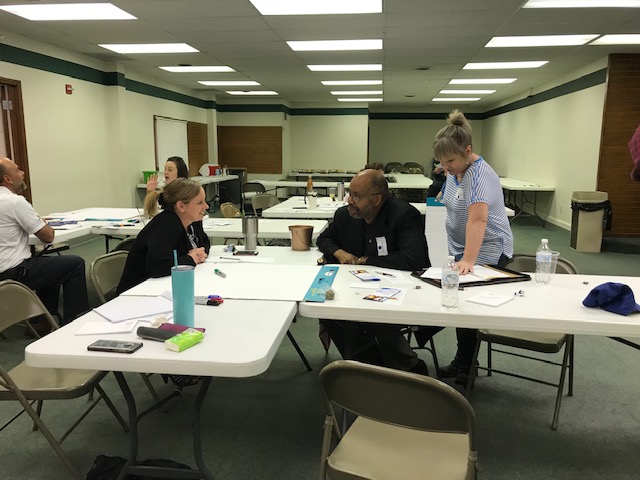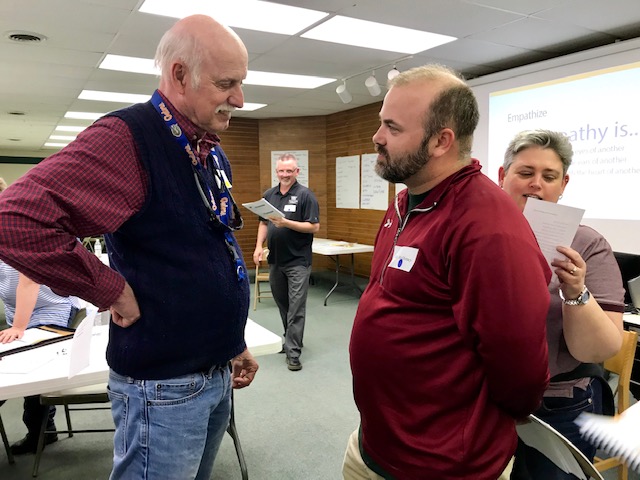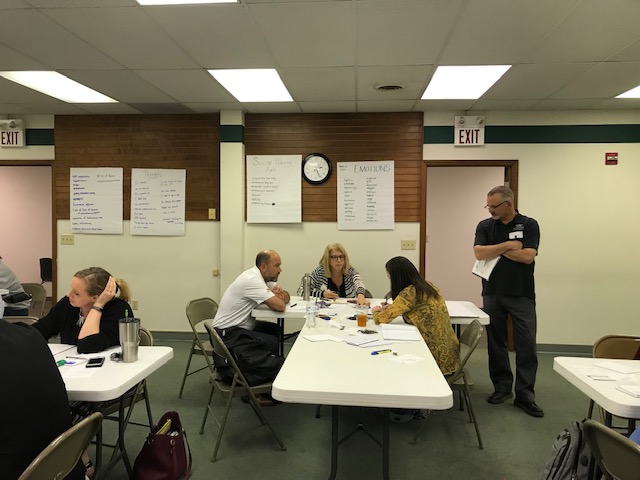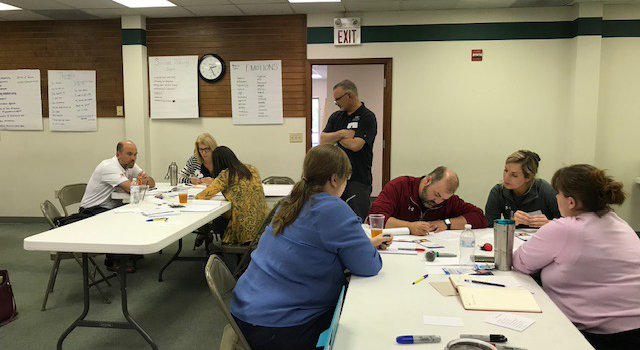According to statistics, about one in five individuals will experience a diagnosable mental illness during a given year. All of us experience emotional pain or distress at times during our lives. Most of us want help yet often feel uncertain about what to do or say. These factors were instrumental in William Woods instituting RESPOND training.
Earlier this month, WWU held a RESPOND (recognize, empathize, share, pose questions, offer hope, navigate resources, and do self-care training session) training session for faculty and staff. This training is designed to prepare higher education professionals to handle a mental health crisis of a student or colleague, having been developed at the University of Missouri – Columbia. William Woods plans to start holding regular training sessions for their staff and faculty going forward in the form of a six-hour course led by members who have attended a previous training.
Three staff and one faculty member from William Woods attended the RESPOND training at the University of Missouri – Columbia in the fall of 2018, which prompted them to bring the training to WWU. The first RESPOND training involvedstaff and faculty beinginvited to attend, rather than being open to all. It was a learning experience for the presenters and trainees, and a chance to receive feedback on how to improve the program on this campus.

The aim of the
“The RESPOND training provides an overview of mental health challenges and symptoms and is specific to college students,” said Elizabeth Wilson, professor of Social Work. “It also presents warning signs that a person might be experiencing suicidal thoughts and how to ask the person if they are considering killing

“Even though the focus will help us to be more effective in our jobs, this training will also be valuable outside of work,” said Mike Wills, Director of Residential Life and Campus Safety. “At some point, someone in your life will experience a mental health crisis and this training can also help prepare you for thatand know how to respond.”
William Woods plans to open up these trainings to all faculty and staff in the future, with multiple sessions per year. All members of the William Woods community have regular interaction with students and can benefit and help others with the RESPOND training.
“The biggest takeaway is to feel comfortable having a difficult conversation,” said Wills. “If you notice some changes in a person, you need to care enough to have that conversation and ask them the hard questions.”

“Each student’s situation is unique and complex. However, as intimidating as these conversations about mental health can be, that doesn’t mean the response has to be over-complicated. The act of providing resources to students in need is simple,” said Josh Simonds, Graduate Assistant for Student Involvement.
This training goes over the resources available on campus, as well as in the community, so faculty and staff can guide students to additional resources. The strength of this program is the confidence it gives the trainee to start the first difficult conversation about mental health with a student.
For information on Counseling and Health Services at William Woods, please visit https://www.williamwoods.edu/student_experience/undergraduate_student_experience/student_services/counseling_and_health_services.html

